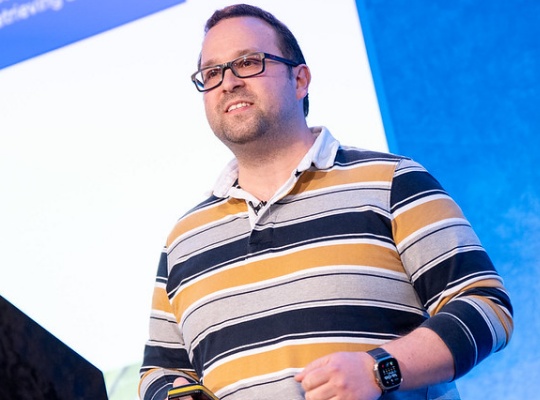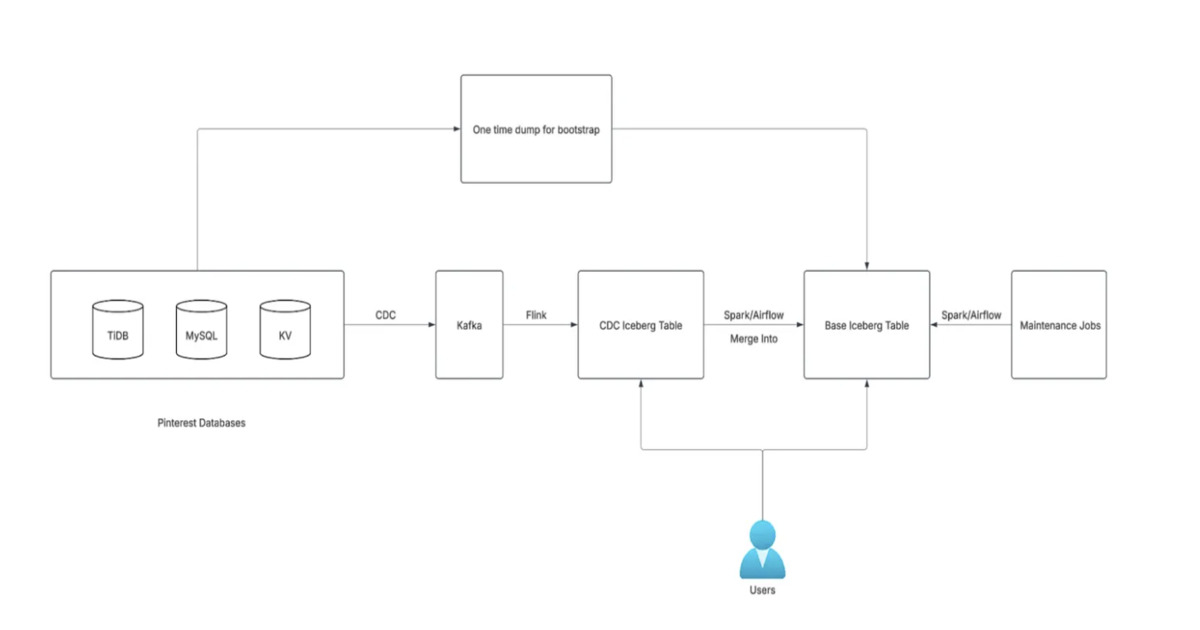Codetown
Codetown ::: a software developer's community
JSR Watch: Here’s to Progress
http://java.ulitzer.com/node/965152
JSR Watch: Here’s to Progress
And here’s to the next 10 years!
By Patrick Curran
May 15, 2009 03:00 PM EDT
Reads: 560
The end of the year is an opportunity to review the past year's activity, and to present this to our Executive Committee (EC) members, to our broader membership, and to the general public. So this month I will summarize our progress during the past year.
PMO Initiatives
First, in addition to the ongoing work of moving JSRs through the process (more on this later), the JCP engaged in a couple of new initiatives around transparency and agility.
I've addressed the transparency issue relatively recently in this column, so I won't say much more here except to remind you that we are now strongly encouraging all Expert Groups (EGs) to work in an open and transparent manner by adopting practices such as the use of public mailing lists and issue-tracking mechanisms. Of course, it would be hypocritical for us to encourage this behavior in EGs while continuing to hold Executive Committee (EC) meetings in private, so there too we are becoming more open. Starting in September 2008 the ECs agreed to make full minutes and meeting materials accessible to the general public rather than simply posting summaries that only JCP members could read. (We reserve the right to go into Private Session from time to time when sensitive matters are discussed, but we don't expect to do this very often.) If you want to see what we're up to, the meeting materials are accessible.
As for agility, when I reviewed 2007 activity this time last year it became apparent that the amount of time it takes Expert Groups to complete their work varies significantly. Some manage to finish in a little more than a year, while others take several years. Also, we know that there are some JSRs that are effectively stalled and really ought to be withdrawn. As a first step to encourage agility we decided to introduce a new category for JSRs that have made no progress for 18 months - these will be labeled as "Inactive" on jcp.org. The PMO will work with the Spec Leads of these JSRs to encourage them to pick up the pace. If it becomes clear that the JSR is unlikely to complete, we will encourage them to withdraw it. In addition, we plan to review all JSRs that reach completion, and others as appropriate, to identify and publicize the good (and bad) practices that affect the speed with which JSRs move through the process.
Both of these subjects were discussed at the December EC meeting. Thanks to our new "open and transparent" policy, you can review the presentation that formed the basis for that discussion here.
Membership
Our membership grew slightly (by 3%) in 2008 to a total of 1,465. About three quarters of these are individual members, while most of the others are corporations, with a small number of non-profit organizations (open source foundations, universities, etc.). Half our members are based in the U.S., one-third in Europe and the Russian Federation, and most of the rest are based in Asia and the Middle East, with 4% in South America. Since individual membership is free and never needs to be renewed, it's likely that some of these members are "inactive" (not having told us that they've moved on), but the turnout in our annual elections (around 30%) shows a reasonably healthy participation rate. Speaking of free membership, we are currently waiving membership fees for Java User Groups who wish to join the organization (several are in the process of doing so). Visit our site for further information.
JSR Activity
In line with the new definition of "Inactive JSRs" (those that made no formal progress through the system during the past 18 months), we collected data on JSRs that made progress during the past 18 months rather than during the calendar year 2008. By this definition we currently have 70 Active JSRs. During this period six new JSRs were started (two others were proposed but failed to win approval), 16 JSRs completed, and 13 issued Maintenance Releases. An additional 38 made other progress through the system, mostly publishing Early Drafts, Public Review Drafts, or Proposed Final Drafts.
Of the 70 Active JSRs, 27 targeted Java ME, 20 were aimed at Java SE, 15 were for Java EE, and 8 intended to support both Java SE and Java EE.
The new JSRs were JSR 320: Services Framework (AT&T); JSR 321: Trusted Computing API for Java ( IAIK Graz University of Technology); JSR 322: Java EE Connector Architecture 1.6 (Sun); JSR 325: IMS Communication Enablers (ICE) (Ericsson AB); JSR 326, Post mortem JVM Diagnostics API (IBM); and JSR 327: Dynamic Contents Delivery Service API for Java ME (SK Telecom).
The JSRs completed in calendar year 2008 were JSR 272: Mobile Broadcast Service API for Handheld Terminals (Nokia/Motorola); JSR 293: Location API 2.0 (Nokia); JSR 298: Telematics API for Java ME (SK Telecom); JSR 311: JAX-RS: The Java API for RESTful Web Services (Sun); JSR 289: SIP Servlet v1.1 (Oracle), JSR 240: JAIN SLEE v1.1 (OpenCloud); JSR 281: IMS Services API (Ericsson AB); JSR 258: Mobile User Interface Customization API (Nokia); JSR 286: Portlet Specification 2.0 (IBM); and JSR 254: OSS Discovery API (Nakina Systems).
A further six JSRs completed in the second half of 2007: JSR 190: Event Tracking API for J2ME (Amdocs Management); JSR 196: Java Authentication Service Provider Interface for Containers (Sun); JSR 263: Fault Management API (HP); JSR 264: Order Management API (Codecentric); JSR 280: XML API for Java ME (Sun, Nokia); and JSR 291: Dynamic Component Support for Java SE (IBM).
The time it took these JSRs to work their way through the process varied from a little over one year for JSR 291 to five years for JSR 190. There are obviously lessons to be learned about how to - and how not to - complete JSRs quickly, and we will investigate further over the coming months.
Spec Leadership and Expert Group Participation
Twenty-two organizations and three individuals played a Spec Lead role on the 70 active JSRs. Sun was the most active, occupying 27 Spec Lead positions, followed by Nokia (11), Oracle (8), Motorola (5), and IBM (4).
Another measure of involvement is participation in Expert Groups. More than 1,200 members served on the EGs of active JSRs (an average of about 17 per group). Two-hundred twenty-one different organizations contributed EG members, together with 245 individuals. Once again, Sun was in the lead with 92 Expert Group members. Oracle (after absorbing BEA) contributed about 75, followed by IBM (54), Motorola (42), Nokia (39), Red Hat (27), Ericsson (24), SAP (24), and Samsung (23) - to list only those companies that contributed 20 or more.
These numbers make it clear that no matter how important we believe individual members are (and I do strongly believe they are important, and appreciate their involvement), the JCP's work could not be accomplished without the active participation of our large corporate members.
Happy Birthday, JCP
Finally, 2008 was a special year for the JCP, since the organization turned 10 years old in December. We celebrated the event in January with a party at the Computer History Museum in Mountain View, to which we invited JCP program participants - Executive Committee members, Spec Leads, and Expert Group members - as well as Sun executives, members of several local Java User Groups, and others who have been influential in the development of Java over the past 10 years. You can see a slide show of photographs from this event.
I'll finish this column as I finished my brief welcome speech at the birthday party, by noting that Java would not be where it is today - with millions of developers, and running on billions of devices - without the JCP. By working collaboratively to develop Java technologies, we grow the market for everybody. Happy birthday to the JCP and here's to the next ten years!
Tags:
Replies to This Discussion
Notes
Welcome to Codetown!
 Codetown is a social network. It's got blogs, forums, groups, personal pages and more! You might think of Codetown as a funky camper van with lots of compartments for your stuff and a great multimedia system, too! Best of all, Codetown has room for all of your friends.
Codetown is a social network. It's got blogs, forums, groups, personal pages and more! You might think of Codetown as a funky camper van with lots of compartments for your stuff and a great multimedia system, too! Best of all, Codetown has room for all of your friends.
Created by Michael Levin Dec 18, 2008 at 6:56pm. Last updated by Michael Levin May 4, 2018.
Looking for Jobs or Staff?
Check out the Codetown Jobs group.
InfoQ Reading List
Vercel Releases React Best Practices Skill with 40+ Performance Rules for AI Agents

Vercel has launched "react-best-practices," an open-source repository featuring 40+ performance optimization rules for React and Next.js apps. Tailored for AI coding agents yet valuable for developers, it categorizes rules based on impact, assisting in enhancing performance, bundle size, and architectural decisions.
By Daniel CurtisKubernetes Introduces Node Readiness Controller to Improve Pod Scheduling Reliability

The Kubernetes project recently announced a new core controller called the Node Readiness Controller, designed to enhance scheduling reliability and cluster health by making the API server’s view of node readiness more accurate.
By Craig RisiPresentation: Platforms for Secure API Connectivity With Architecture as Code

Jim Gough discusses the transition from accidental architect to API program leader, explaining how to manage the complexity of secure API connectivity. He shares the Common Architecture Language Model (CALM), a framework designed to bridge the developer-security gap. By leveraging architecture patterns, engineering leaders can move from six-month review cycles to two-hour automated deployments.
By Jim GoughMicrosoft Open Sources Evals for Agent Interop Starter Kit to Benchmark Enterprise AI Agents

Microsoft's Evals for Agent Interop is an open-source starter kit that enables developers to evaluate AI agents in realistic work scenarios. It features curated scenarios, datasets, and an evaluation harness to assess agent performance across tools like email and calendars.
By Edin KapićPinterest’s CDC-Powered Ingestion Slashes Database Latency from 24 Hours to 15 Minutes

Pinterest launched a next-generation CDC-based database ingestion framework using Kafka, Flink, Spark, and Iceberg. The system reduces data availability latency from 24+ hours to 15 minutes, processes only changed records, supports incremental updates and deletions, and scales to petabyte-level data across thousands of pipelines, optimizing cost and efficiency.
By Leela Kumili
© 2026 Created by Michael Levin.
Powered by
![]()